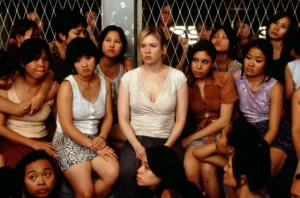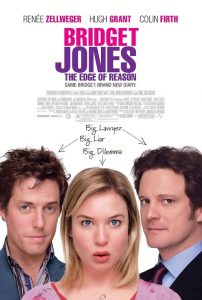Bridget Jones: The Edge of Reason (2004) is a romantic comedy directed by Beeban Kidron and serves as the sequel to the successful Bridget Jones’s Diary (2001), based on the books by Helen Fielding. The film stars Renée Zellweger reprising her iconic role as Bridget Jones, the lovable, imperfect, and relatable single woman who is still navigating her life, career, and complicated love life. Following the events of the first film, where Bridget finally chooses between the charming yet emotionally unavailable Daniel Cleaver (Hugh Grant) and the steady, seemingly perfect Mark Darcy (Colin Firth), The Edge of Reason picks up where the first film left off, with Bridget and Mark in a relationship, though things are far from perfect. In the beginning of The Edge of Reason, Bridget seems to have found happiness with Mark Darcy, but as with all of her romantic endeavors, things do not go smoothly. Bridget’s insecurities and anxieties about their relationship begin to surface, especially when she becomes suspicious of Mark’s behavior. Her fear of being left alone and her personal insecurities, including her struggles with body image, prevent her from fully enjoying the relationship. Meanwhile, Bridget’s life is further complicated by her ongoing issues at work, where she is tasked with covering a TV story that leads her to a series of comedic misadventures. Her insecurities grow, and she misinterprets Mark’s actions, leading to a disastrous breakup that sends her spiraling into a series of chaotic and hilarious events.

The middle portion of the film follows Bridget’s journey as she tries to move on from Mark, only to find herself tangled in even more comical situations. Her previous romantic interest, Daniel Cleaver, reappears, and Bridget finds herself torn between the two men. As she becomes involved with Daniel again, she quickly realizes that he is still the same self-absorbed, unreliable playboy that he was before, and her brief flirtation with him only adds more complications to her already messy love life. Throughout the film, Bridget’s self-doubt and her often misguided attempts to control her fate make for a series of entertaining and relatable moments. Despite her flaws, Bridget’s determination to find love, acceptance, and happiness resonates with audiences, and her character’s journey towards self-realization becomes the heart of the film. In the final act of The Edge of Reason, Bridget comes to an important realization about herself and the kind of love she truly wants. She confronts her insecurities head-on and understands that a relationship cannot be built on the foundation of unrealistic expectations or the need for constant reassurance. In a climactic and heartwarming scene, Bridget and Mark reconcile, realizing that despite their differences, they share a deep connection. The film ends with the two of them coming together in a way that feels both realistic and satisfying, showing that while relationships are often messy and complicated, love is worth the effort. The Edge of Reason ultimately delivers a message about personal growth, the importance of self-acceptance, and the humor that comes with navigating life’s many ups and downs.

Bridget Jones: The Edge of Reason (2004) is a charming and comedic exploration of love, relationships, and the insecurities that come with them. The film blends humor with heartfelt moments, making it a perfect follow-up to its predecessor. Renée Zellweger’s performance as Bridget remains endearing, and her relatable portrayal of a woman trying to balance love and self-doubt continues to resonate with audiences. While the film may not be as groundbreaking as the first, it offers a satisfying continuation of Bridget’s journey, filled with humor, heart, and a timeless message about the complexities of love.
